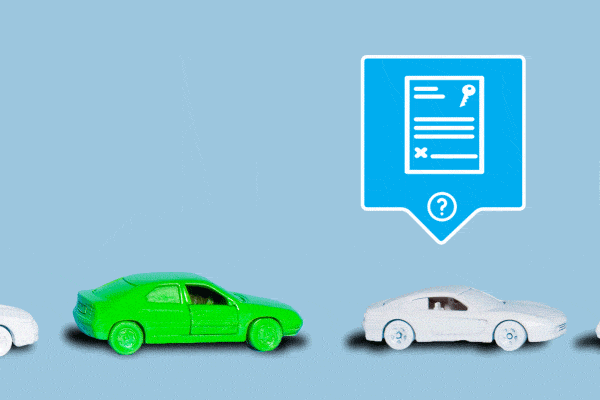Whether you’re looking for your first car or your fifth, it’s an important question: Do you buy or lease? In other words, do you save up for a down payment and finance the balance so that you own your wheels? Or is leasing a car—in essence, a long rental—a better fit?
The leasing vs. financing decision depends on several factors, from your budget to your expected mileage to how long you plan to keep the car, says Alain Nana-Sinkam, vice president of strategic initiatives for the car-buying service TrueCar. Here are some of the questions to ask yourself, he says, to help decide which way you may want to go.
1. How Big A Car Payment Do I Want?
Down Payment
If you’re financing a car, a larger down payment can help lower your monthly payments. With a lease, a down payment may or may not help reduce your monthly charges by much. Ask for two quotes: one with a down payment you can afford and one without—then compare total costs over the term of the lease.
Monthly Payment
Ongoing payments will generally be lower with a lease, because you’re not paying off the total cost of the car—just the depreciation plus fees and interest. If you finance your car, you’re paying off the value of the entire vehicle, which is why the payments will usually be higher (depending on the down payment and the length of the financing term). Of course, once the financing term is over (usually a period of up to seven years), those monthly payments will disappear.
2. What Are The Insurance Implications?
Leasing a car usually requires a higher insurance premium, because the leasing company technically owns the car in full and wants to make sure the car is well covered in case of an accident. When financing a car, the finance company requires insurance, too, but the baseline coverage needs won’t be as high. Of course, you always want to have the appropriate amount of insurance for your own needs. (To make sure you do, get a quote on auto insurance from GEICO.)
3. How Long Will I Keep It?
Lease terms are generally three years, so if you’re the type of person who always likes to drive something new, leasing may be the better option vs. buying a car. (Be aware, however, that if you need to turn in your leased car early, you’ll still need to make all of the remaining payments, plus any end-of-contract fees.) If you value ownership and plan on keeping the vehicle as long as possible, then financing through a car loan may make more sense.
If you lease a car, there will be strict limits to how much you can drive—usually 15,000 miles per year. If you exceed that amount, you’ll have to pay penalties, plus hefty per-mile overage charges on top of that. If you normally put lots of miles on your vehicle, or think that you might, buying a car is probably the way to go; you can drive it as much or as little as you want.
5. What’s More Important At Trade-In Time?
For ease, it’s hard to beat leasing a car. Turning in your leased car is as simple as driving to the dealership, handing over the car keys and paying any final fees and charges for wear and tear. But if you want the possibility of getting cash for your used car, then buy. Whatever your car’s worth at the time of trade-in can go toward a down payment for your next vehicle, saving you money right off the top. (Here are some tips on getting more money for your trade-in.)
6. Do I Want To Be Responsible For Maintenance And Repairs?
All car makers offer standard warranties to cover things that break. Some automakers also offer maintenance agreements that cover things that wear out (like brakes, wipers and engine oil). These warranties and maintenance agreements usually last three or four years, so if you lease a car, your entire lease term could be covered and you may not have to pay maintenance-related expenses. If you buy and keep your car after these agreements expire, you’ll need to pay these expenses or do the car maintenance work yourself.
Keep in mind: Before you purchase an extended warranty, check out Mechanical Breakdown Insurance from GEICO, which covers all parts and systems of the car and could save you money in the long run.
Normal wear and tear, such as worn tires and windshield wipers, is expected when you turn in a leased vehicle after three years; anything beyond that could be assessed a fee. If you want to avoid worrying about this, buying a car may be the better option.
8. Do I Want to Customize The Car?
If you like your car to be an extension of your personality with things like special wheels, then you’ll want to buy your car: Leasing a car doesn’t usually allow for customization. If you buy and upgrade things like safety features or the sound system, you might be able to be recoup some of your expenditures upon trade-in.
9. Will I Be Using The Car For A Side Hustle?
If you want to use your car for a side business like ridesharing, a leased vehicle may not be right for you: Stipulations in leasing contracts usually restrict any kind of business usage. (Plus, using the car for work could add many miles and cause you to go over your annual mileage limit.) It’s best to consult with the leasing company first before you use the car for anything other than routine driving. Of course, if you buy your car, it’s up to you to decide what you’d like to use it for.
Read more: 5 Extra & Hidden Costs To Consider When Buying A Car
By Ellise Pierce
